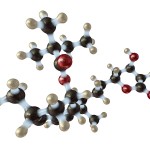
Andrés Fonseca summarises the findings of a recent systematic review of the clinical effectiveness and cost-effectiveness of sensory, psychological and behavioural interventions for managing agitation in dementia.
[read the full story...]
Andrés Fonseca summarises the findings of a recent systematic review of the clinical effectiveness and cost-effectiveness of sensory, psychological and behavioural interventions for managing agitation in dementia.
[read the full story...]
Psychiatrist Andrés Fonseca considers how his clinical practice should change, after reading a systematic review and meta-analysis of drug treatment for neuropsychiatric symptoms in Alzheimer’s disease
[read the full story...]
This is a dilemma I frequently face when I am called out to see someone with dementia on the ward or living in a nursing home. On the one hand I am thinking that anything I use can potentially have serious side-effects and will probably lead to increased health risks and increased mortality. On the [read the full story…]

People with dementia caused by Alzheimer’s Disease (ADD) (which is estimated to be around three quarters of people with dementia) often suffer from sleep disturbances. These symptoms cause distress to the person with dementia and to their carers, increase the likelihood of admission to a care home, and are also very difficult for care home [read the full story…]

Last July I wrote a blog (Helping patients and carers deal with a diagnosis of dementia: one size doesn’t fit all) about a systematic review of qualitative evidence (Bunn, 2012) relating to patients and carers experiences of reaching and adapting to a diagnosis of dementia. That blog was heavily influenced by personal experience of my [read the full story…]

It was relatively recently that every Tom, Dick and Harry in the scientific community was popping vitamin E supplements in the hope that this antioxidant would help protect them from the damaging effects of free radicals. Us elves get our vitamin E from the vegetables, fruits and whole grains that make up our naturally healthy diet. Many single [read the full story…]

People with Alzheimer’s disease experience a loss of nerve cells that use a chemical called acetylcholine as a chemical messenger. Dementia symptoms become more severe as more nerve cells are lost. Cholinesterase inhibitors are a group of drugs (including donepezil, rivastigmine and galantamine) that prevent the enzyme acetylcholinesterase from breaking down acetylcholine in the brain. [read the full story…]

This topic has been well publicised in recent years and for good reason. We know that there is a huge disparity between the number of people with dementia who are prescribed antipsychotics (180,000 in England each year) and the number who may derive some benefit from the treatment (36,000). We also know that dangerous side [read the full story…]

Alzheimer’s disease affects 1-2% of people aged 65-70 and approximately 20% of those over 80 years. As our population ages, the condition is on the increase and it’s estimated that 2030, an estimated 7.7 million Americans aged 65 and older will have Alzheimer’s disease. We do not yet know exactly how and why Alzheimer’s disease [read the full story…]

Previous studies have suggested that statin therapy might be a useful treatment for Alzheimer’s disease. This randomised controlled trial conducted by a team of researchers from Mount Sinai School of Medicine set out to determine if the lipid-lowering agent simvastatin slows the progression of symptoms in Alzheimer’s disease. They recruited 406 people with mild to moderate Alzheimer’s [read the full story…]